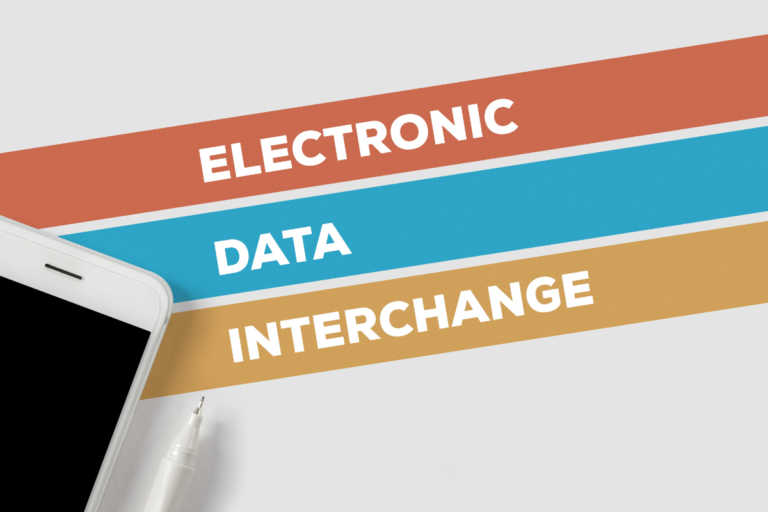What Is General Data Protection Regulation Gdpr
Imagine a world where your personal information is protected and your online privacy is a priority. This is the reality that the General Data Protection Regulation (GDPR) aims to create.
In this article, we will delve into the key principles of GDPR, its scope and applicability, the rights it grants to individuals, and the responsibilities it imposes on businesses.
By understanding the GDPR, you will be better equipped to navigate the digital landscape with confidence and security.
Key Takeaways
- GDPR applies to all organizations processing personal data within the EU, including businesses based within and outside the EU, and those offering goods/services to individuals in the EU.
- The rights of individuals under GDPR include the right to access personal data, right to rectification, right to erasure, right to restrict processing, and right to data portability.
- Businesses have responsibilities and obligations under GDPR, including implementing data protection measures, appointing a Data Protection Officer (DPO), reporting data breaches, establishing policies and procedures, and conducting privacy impact assessments.
- Non-compliance with GDPR can result in significant penalties, including fines up to €20 million or 4% of global annual turnover, which can have financial implications, legal consequences, and impact on financial stability and reputation. It is important for organizations to understand and comply with GDPR requirements.
Key Principles of GDPR
You should familiarize yourself with the key principles of GDPR. The General Data Protection Regulation (GDPR) is a comprehensive legal framework that aims to protect the personal data of individuals within the European Union (EU). It establishes a set of rules and guidelines for organizations handling personal data, ensuring that individuals have control over their own information.
One of the key principles of GDPR is the concept of data protection by design and by default. This means that organizations must implement measures to safeguard personal data from the very beginning, ensuring that privacy is embedded into their systems and processes. They must also ensure that the default settings of their services prioritize data protection.
Another principle is the requirement for organizations to obtain valid consent from individuals before processing their personal data. Consent must be freely given, specific, informed, and unambiguous. Organizations should also provide individuals with the ability to withdraw their consent at any time.
GDPR also emphasizes the importance of transparency and accountability. Organizations must be transparent about their data processing activities and provide individuals with clear and easily accessible information about how their personal data is being used. They must also maintain records of their data processing activities and implement appropriate security measures to protect personal data.
Scope and Applicability of GDPR
The GDPR applies to all organizations that process personal data of individuals within the European Union, regardless of their size or location. This means that if your organization handles personal data of individuals within the EU, you’re obligated to comply with the GDPR. The scope of the GDPR is quite broad, covering not only businesses based within the EU, but also those outside the EU that offer goods or services to individuals in the EU or monitor their behavior.
One of the main GDPR compliance challenges organizations face is the need to implement appropriate technical and organizational measures to protect personal data. This includes ensuring the confidentiality, integrity, and availability of the data, as well as implementing measures to ensure ongoing compliance with the GDPR.
The GDPR also has significant implications for international data transfers. It requires organizations to ensure that any transfer of personal data to countries outside the EU is done in compliance with the GDPR’s requirements. This means that organizations need to assess the adequacy of data protection in the receiving country and implement appropriate safeguards, such as Standard Contractual Clauses or Binding Corporate Rules, to protect personal data during the transfer.
Rights of Individuals Under GDPR
As an individual under GDPR, you have the right to access and obtain a copy of your personal data that’s being processed by an organization. This is one of the key data subject rights established by the General Data Protection Regulation (GDPR) to protect your personal information. The GDPR aims to enhance data protection and privacy for individuals within the European Union (EU) and the European Economic Area (EEA).
In addition to the right of access, GDPR grants you other important rights as a data subject. These include the right to rectification, which allows you to request the correction of any inaccurate or incomplete personal data held by an organization. You also have the right to erasure, commonly known as the ‘right to be forgotten,’ enabling you to request the deletion of your personal data under certain circumstances.
Furthermore, GDPR provides you with the right to restrict processing, which allows you to limit how an organization uses your personal data. You also have the right to data portability, enabling you to obtain and reuse your personal data for your own purposes across different services. Additionally, GDPR grants you the right to object to the processing of your personal data, including for direct marketing purposes.
These data subject rights under GDPR empower you to have control over your personal information and ensure that organizations handle your data responsibly and transparently. By exercising these rights, you can actively participate in the protection of your privacy and data protection.
Responsibilities and Obligations for Businesses
To comply with GDPR, businesses must implement robust data protection measures and ensure the responsible handling of personal data. This means that organizations need to establish policies and procedures to safeguard the privacy and security of individuals’ information.
Here are some key responsibilities and obligations for businesses under GDPR:
-
Implementing data protection measures: Businesses must take appropriate technical and organizational measures to protect personal data against unauthorized access, loss, or destruction. This includes encrypting sensitive data, regularly updating security systems, and conducting privacy impact assessments.
-
Appointing a Data Protection Officer (DPO): Organizations that process large amounts of personal data or engage in systematic monitoring of individuals must appoint a DPO. The DPO is responsible for ensuring compliance with GDPR, providing advice on data protection matters, and acting as a point of contact for data subjects and supervisory authorities.
-
Reporting data breaches: In the event of a data breach, businesses must notify the relevant supervisory authority within 72 hours of becoming aware of the breach. They must also inform affected individuals if the breach is likely to result in a high risk to their rights and freedoms.
Potential Penalties for Non-Compliance
If you fail to comply with GDPR, you could face significant penalties and fines. The General Data Protection Regulation (GDPR) is a comprehensive data protection law that aims to protect the personal data of individuals within the European Union (EU). It sets out strict guidelines and obligations for businesses that handle personal data, and failure to adhere to these regulations can have severe legal consequences and financial implications.
Under the GDPR, organizations that fail to comply with the requirements can be fined up to €20 million or 4% of their global annual turnover, whichever is higher. These penalties are designed to ensure that businesses take data protection seriously and prioritize the privacy and security of individuals’ personal information.
The financial implications of non-compliance with GDPR can be significant. Organizations may face substantial fines, which can have a detrimental impact on their financial stability and reputation. Additionally, the legal consequences can result in legal action, investigations, and potential lawsuits, further adding to the financial burden.
It is crucial for businesses to understand and comply with the GDPR requirements to avoid these penalties and safeguard the personal data of their customers and employees. Implementing robust data protection policies, conducting regular audits, and providing adequate training to employees are essential steps towards achieving compliance and mitigating the risks associated with non-compliance.
Conclusion
As you journey through the realm of data protection, the General Data Protection Regulation (GDPR) stands tall as a guiding force. Its key principles weave a tapestry of transparency, accountability, and consent, ensuring individuals hold the reins of their personal information.
Businesses bear the responsibility of safeguarding this precious asset, while non-compliance dances with the specter of penalties. Like a conductor orchestrating harmony, GDPR harmonizes the rights of individuals and the obligations of businesses, creating a symphony of data protection in the modern age.






